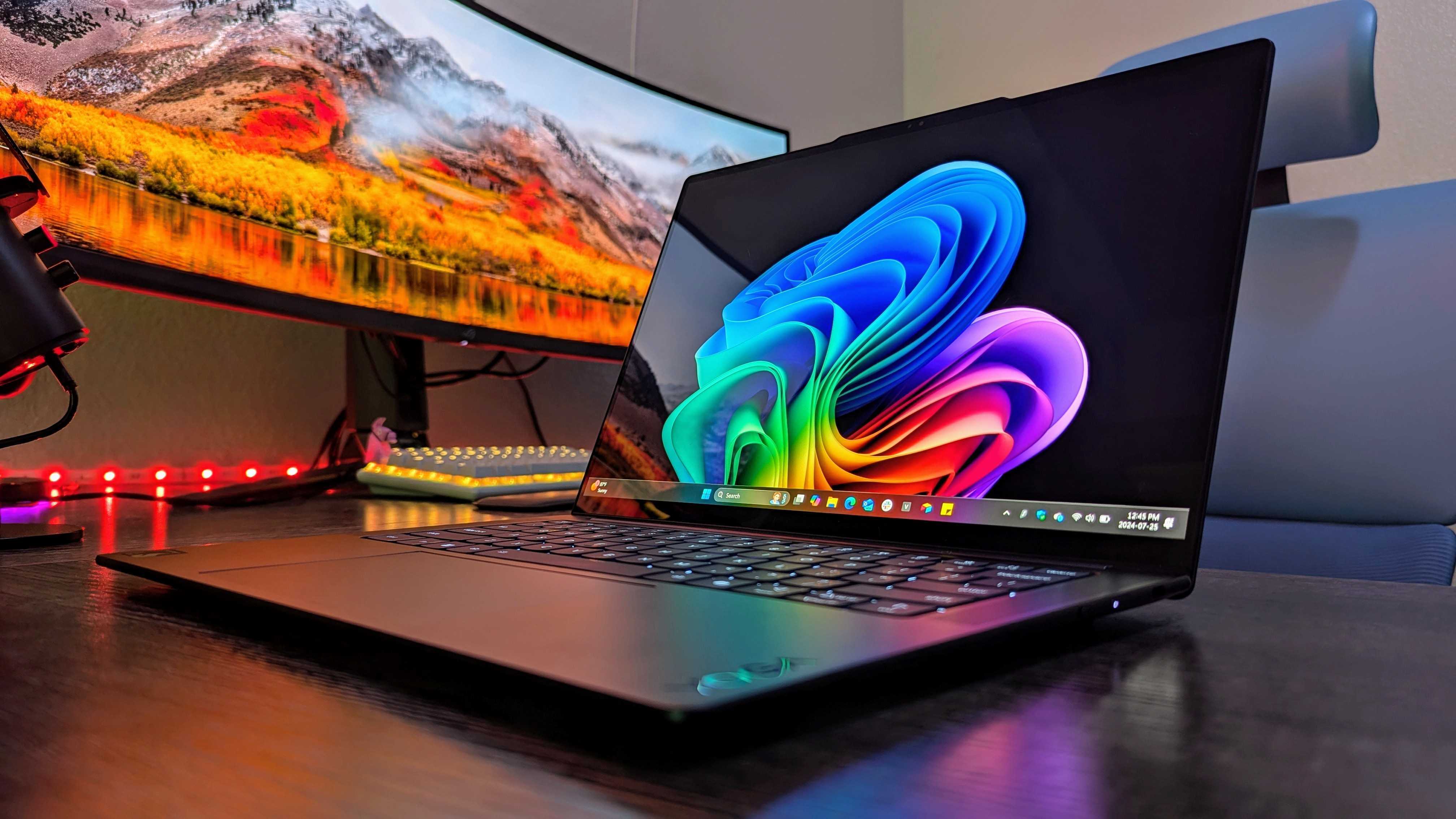AMD at CES 2020: Threadripping, new Ryzen laptop CPUs, and more
Stealing the show from under Intel's feet.
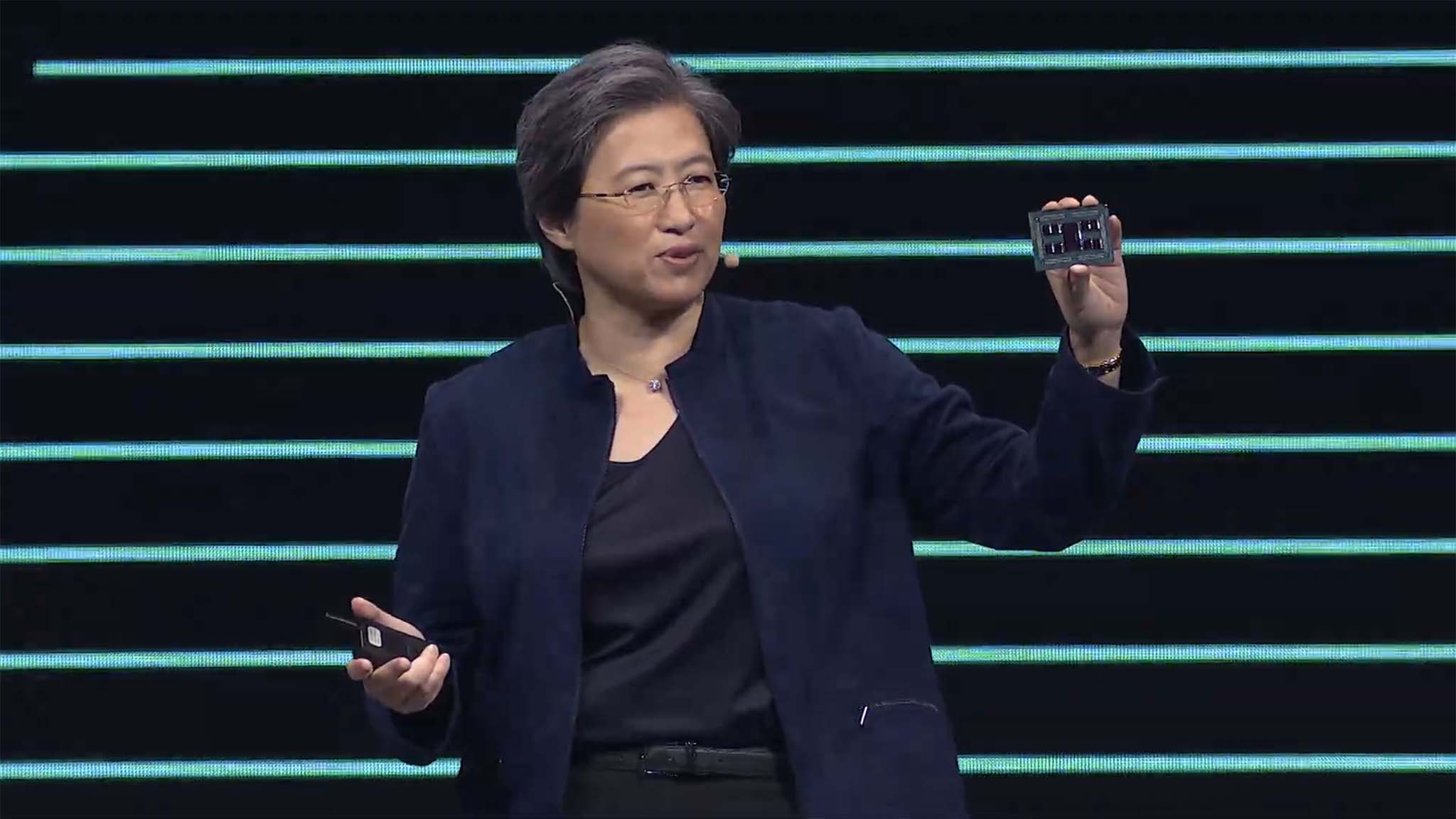

We were excited for CES 2020. From a PC perspective, the competition between Intel and AMD is heating up, which led us to believe this week would see some killer announcements from the two rivals. Unfortunately, while Intel didn't really have much to share, AMD went all out with some big headlines.
Here's everything AMD announced at CES 2020, just in case you missed it.
Ripping apart all the threads
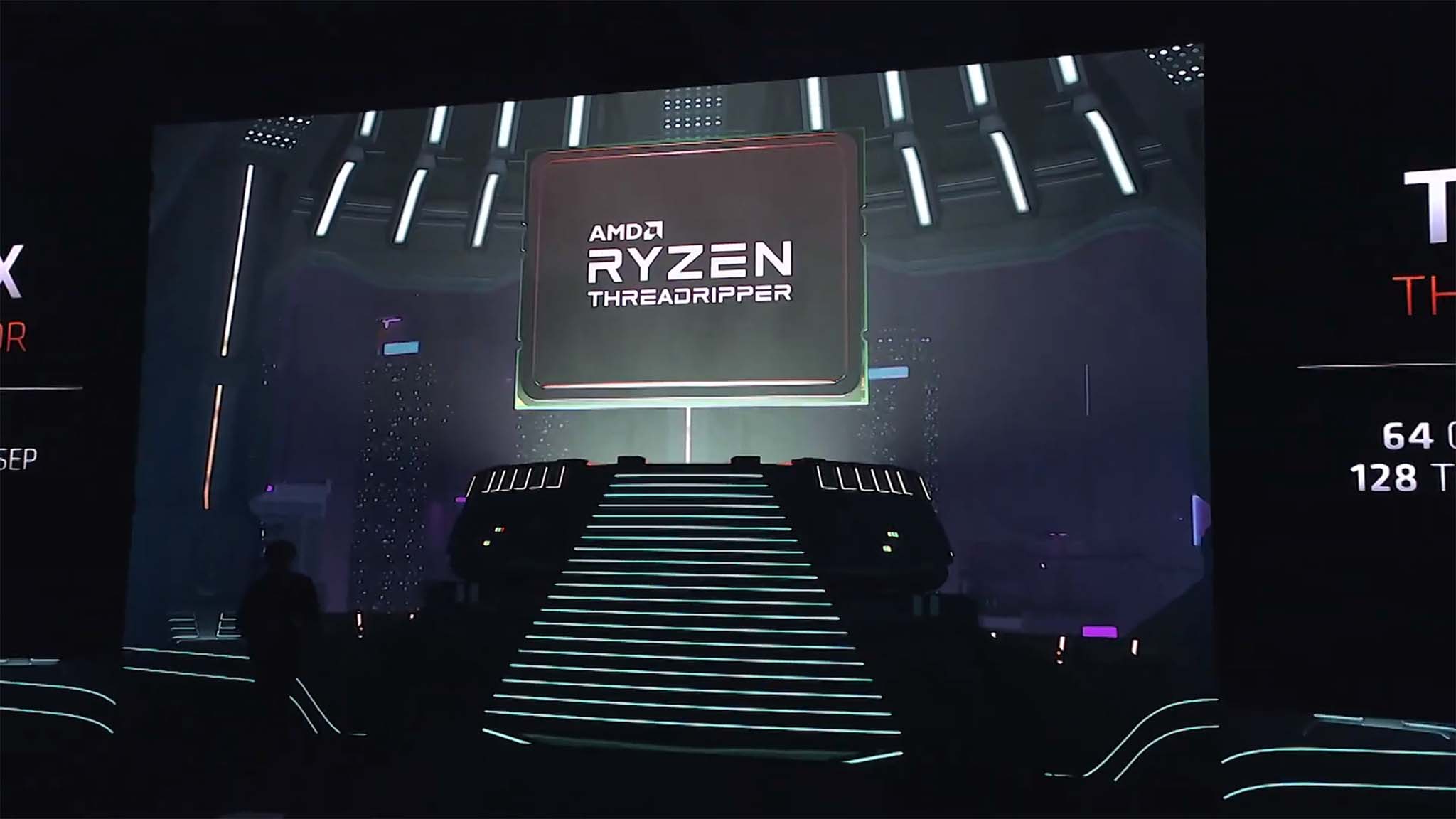
The most important announcement from AMD was the new Ryzen Threadripper 3990X. It's a beast of a processor, rocking a total of 64 physical cores with hyperthreading, allowing you to utilize 128 cores. That's crazy for a consumer-grade CPU and one that doesn't require an expensive setup to enjoy.
The most powerful Threadripper we've seen to-date is a 32-core CPU, so AMD managed to double the number of physical cores with the latest architecture advancement. What this means for system builders is enhanced performance compared to a $20,000 dual Intel Xeon Platinum 8280 setup. What?
The best part is the price. $3,990.
Read more: AMD announces new 64-core Threadripper 3990X
Improved Ryzen mobile CPUs
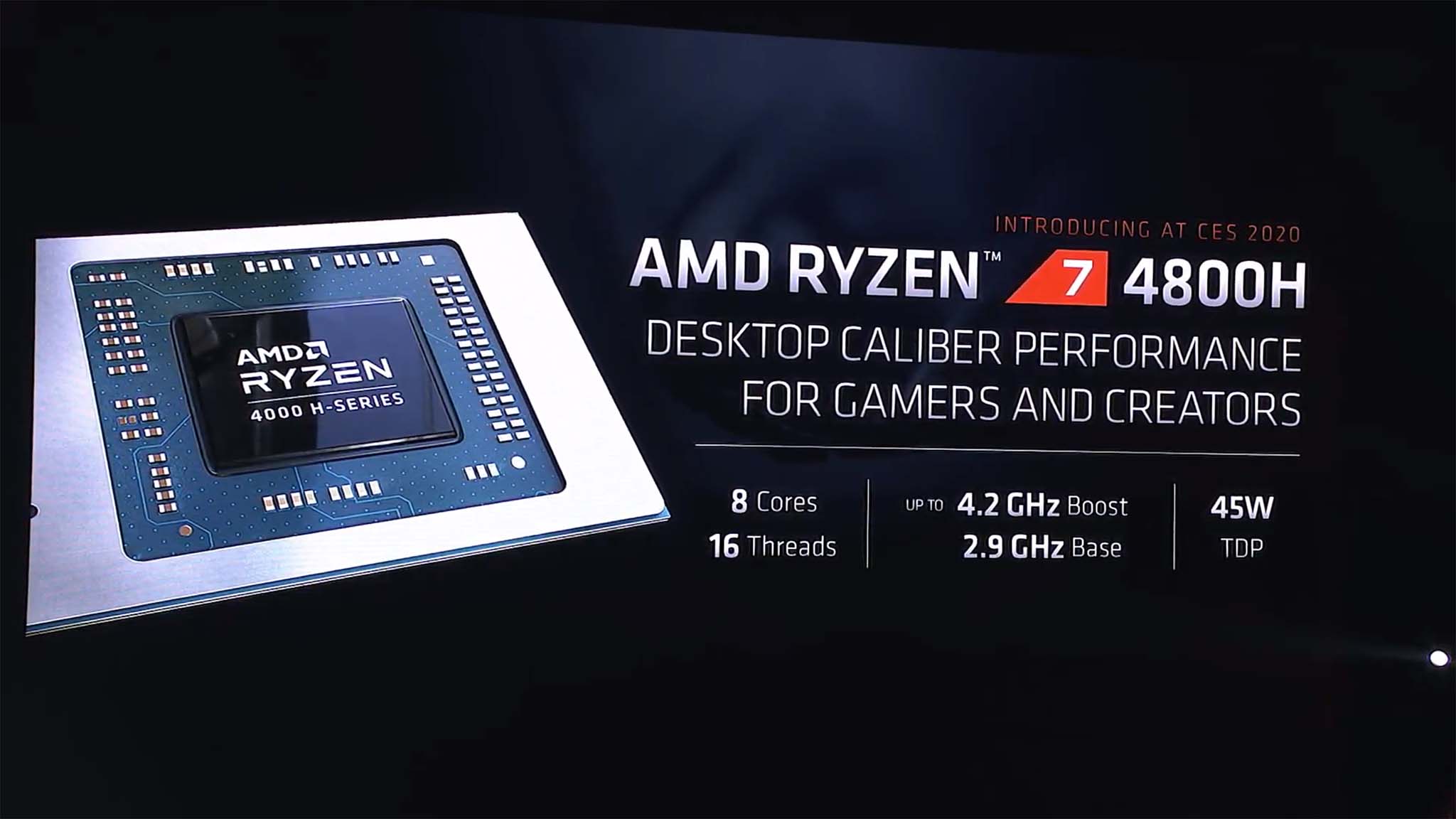
As well as a new King of AMD desktop CPUs, the company also announced a family of Ryzen 4000 mobile processors for laptops. These new CPUs are based on AMD's 7nm manufacturing process, the same utilized for the desktop Ryzen 3000 series of processors.
Get the Windows Central Newsletter
All the latest news, reviews, and guides for Windows and Xbox diehards.
The new Ryzen 7 4800U rocks eight cores and 16 threads, the same as the Ryzen 7 4800H, but the latter comes with higher clock speeds and TDP of just 45W. AMD compared the 4800U against Intel's Core i7-1065G7 with comparable single-core performance but utterly smashing it in multi-core and graphics.
But that's not all as the company had the guts to state on stage that the Ryzen 7 4800H easily outperforms the Intel Core i7-9700K, a desktop processor.
- Read more: AMD announces new 7nm Ryzen 4000 series notebook CPUs
- Thanks to AMD's new Ryzen 4000 laptop APUs, laptop buyers have a real choice again
New mid-range RX 5600 GPUs
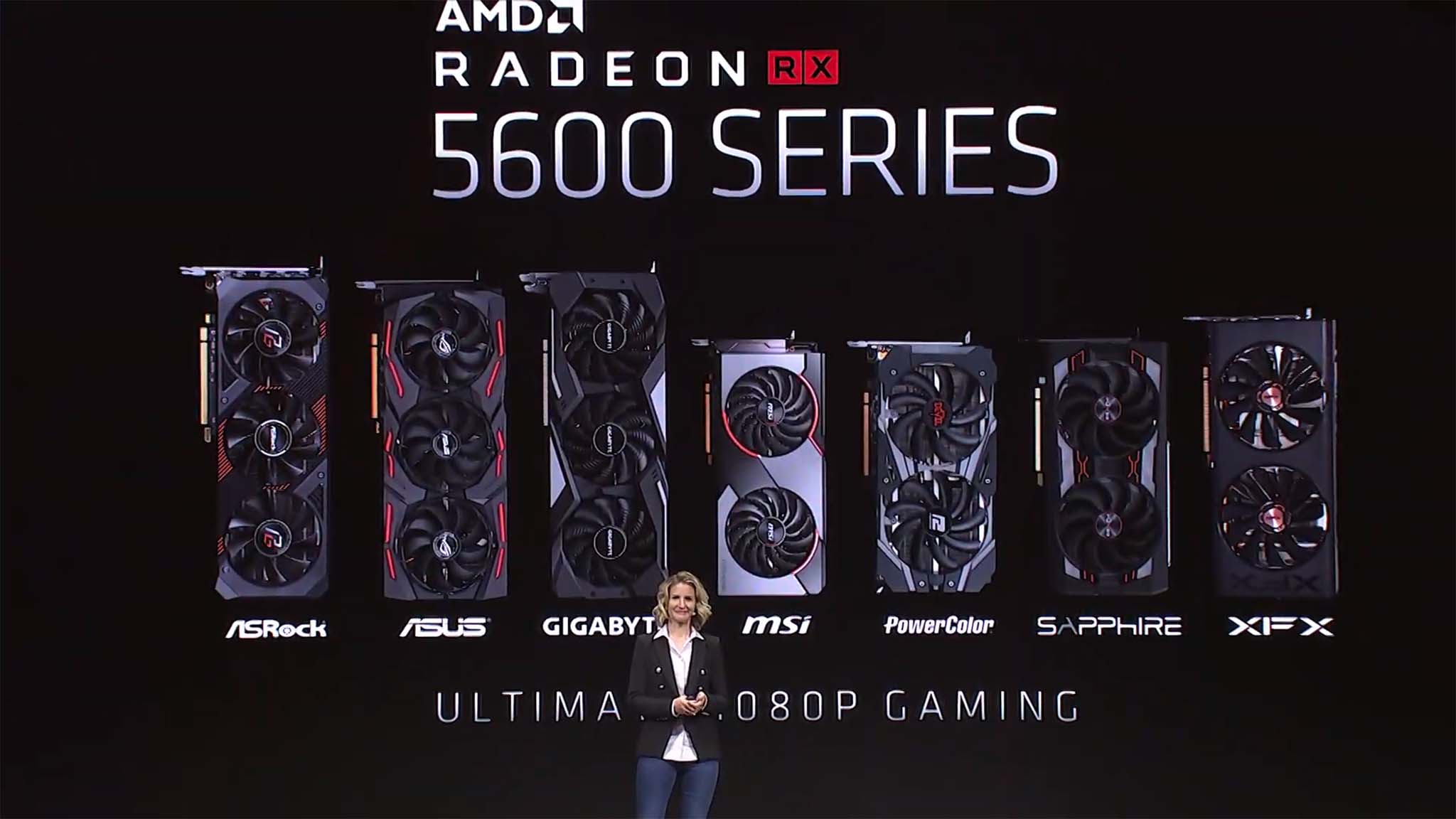
AMD still really doesn't have an answer for NVIDIA's high-end GPUs, but the company is further bolstering its catalog of affordable GPUs with the launch of RX 5600 XT. These cards are suited for 1080p gaming, slotting in just beneath the existing RX 5700.
Spec jargon includes 36 compute units, a 1,375 MHz game clock with a 1,560 MHz boost clock and 6GB of GDDR6 memory. What this all means for gaming is it's based on AMD's latest generation RDNA architecture on a 7nm process and packs enough power for all your favorite games at Full HD.
The price is also appealing, coming in at just $279 and availability kicks off on January 21 so we won't have long to wait.
Read more:AMD announces RX 5600 XT GPU at CES 2020
Introducing FreeSync tiers
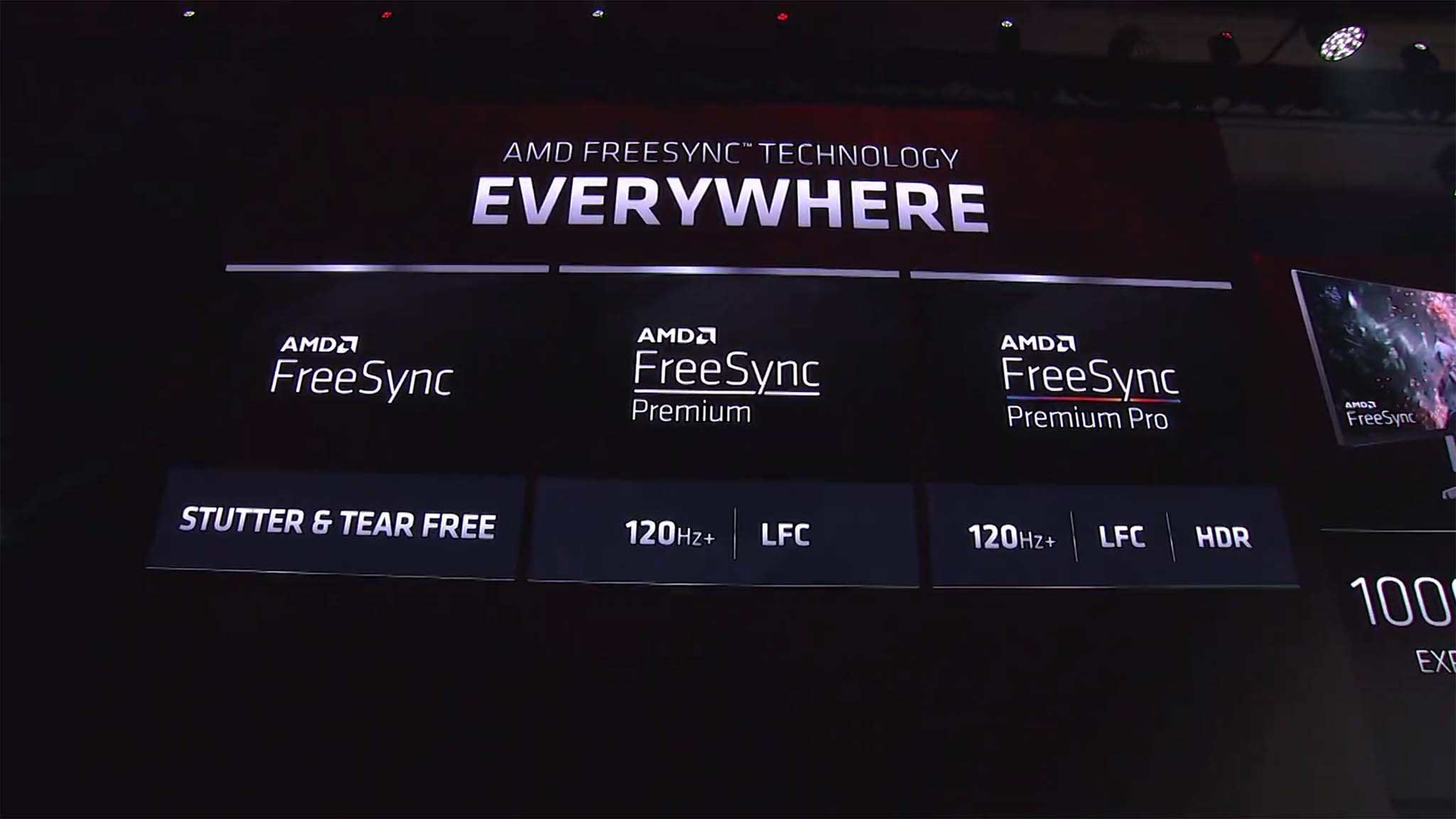
As well as new GPUs and CPUs, AMD also announced a new tier system for its FreeSync display technology. The new standard tier is the baseline for most laptops and affordable displays, which delivers synchronization without high refresh rates and other premium features.
FreeSync Premium turns things up a notch with at least a refresh rate of 120Hz on a 1080p panel with low framerate compensation (LEC) for smoother gaming. Previously known as FreeSync 2 HDR, FreeSync Premium Pro adds HDR support, reduced flickering, lower latency, as well as everything included with FreeSync Premium.
The top tier was included with the ViewSonic ELITE XG550, also announced at CES 2020.
Read more: AMD introduces tiers to its FreeSync display technology at CES 2020
Using incorrect Xbox stock imagery
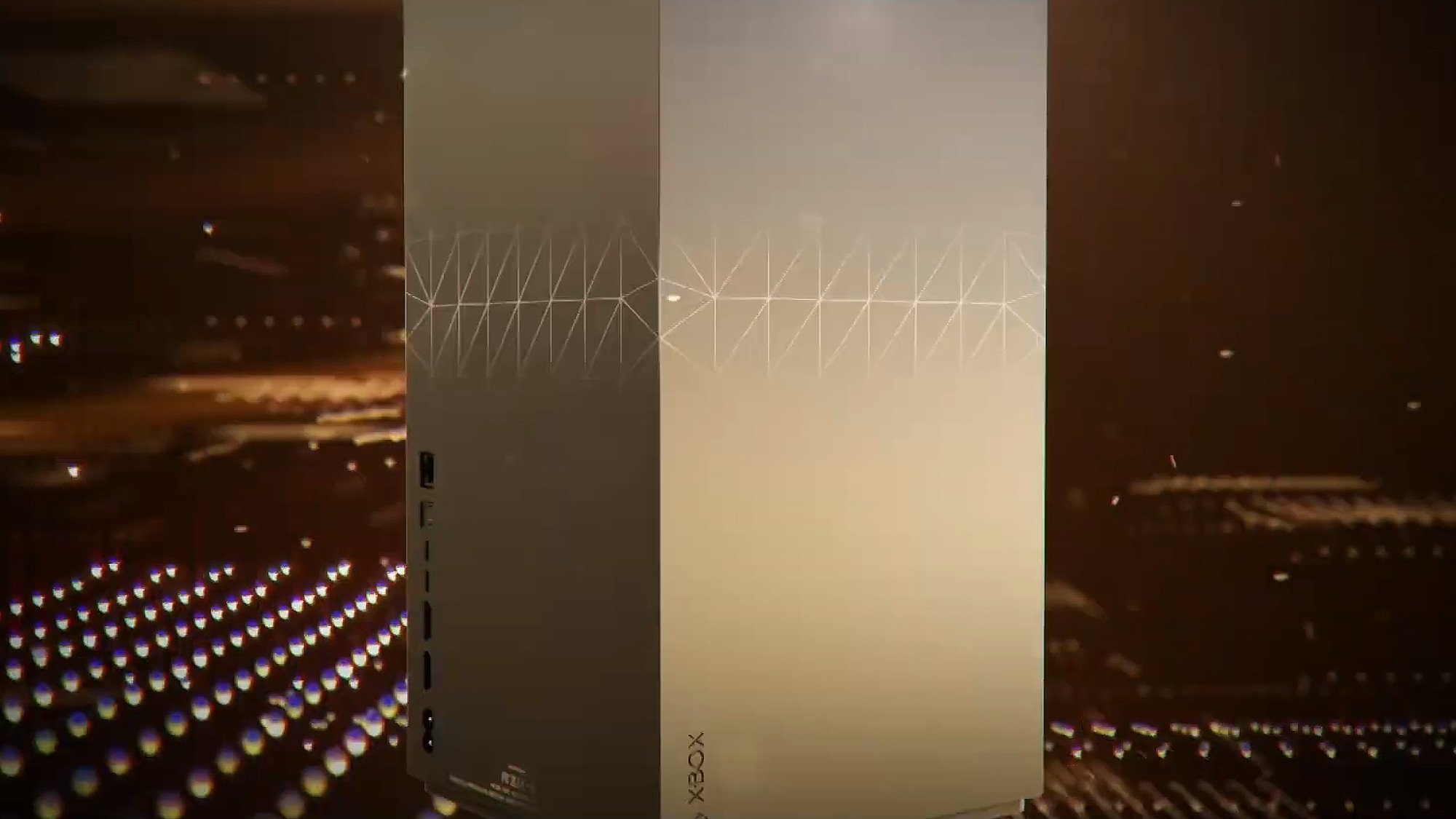
It wasn't all good news during AMD's event. The company showcased the upcoming Xbox Series X console from Microsoft, which like the PS5 packs inside AMD hardware. The issue with showing off an image of this new console is that it wasn't supplied by Microsoft — AMD purchased it from a third-party.
We spotted some ports on the image and ran with it, but it turns out that this wasn't accurate at all, misleading everyone who spotted it (or read our coverage). Bad, AMD.

Rich Edmonds was formerly a Senior Editor of PC hardware at Windows Central, covering everything related to PC components and NAS. He's been involved in technology for more than a decade and knows a thing or two about the magic inside a PC chassis. You can follow him on Twitter at @RichEdmonds.
